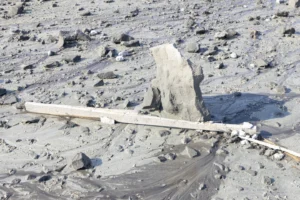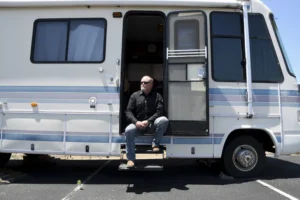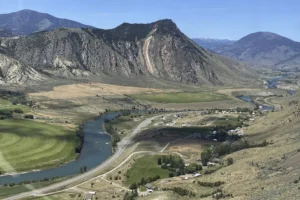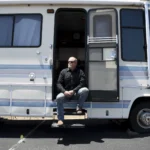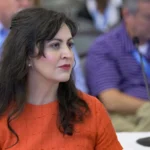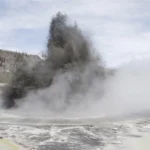Summer 2022 Intern: Clay Simpson
- Published In: Other News & Features
- Last Updated: Jun 14, 2022
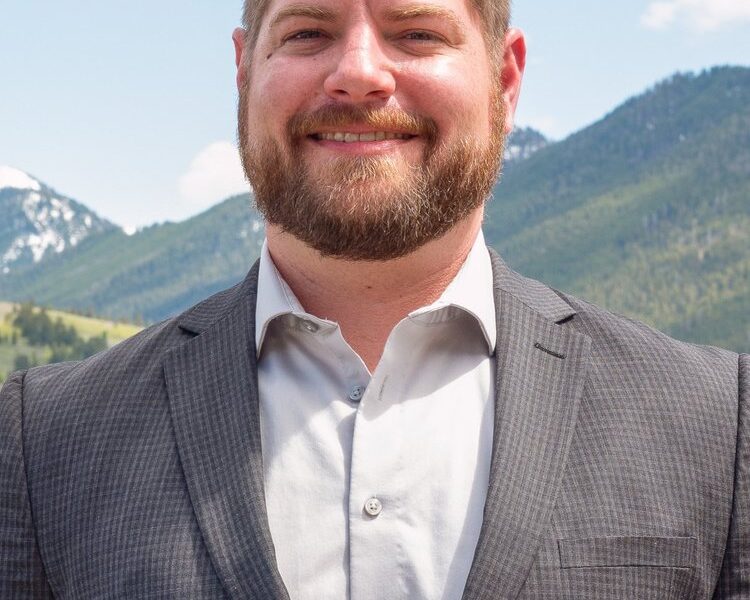
“Bad boys, bad boys, what ya gonna do, what ya gonna do when they come for you?” (Theme song to TV docuseries “COPS”)
My interest in the criminal justice system undoubtedly started as a child, when I spent time watching “COPS” with my father on the living room TV in our home in Dubois, Wyoming. At first, my fascination with the popular law enforcement docuseries inspired me to want to become a police officer and one day chase after and arrest the bad guys myself. This notion remained true for most of my adolescence, but my desire for a career in law enforcement began to shift through my undergraduate studies in criminal justice at the University of Wyoming.
As a college student, my eyes started to open to the imperfect reality of law enforcement in America, and I noticed the injustices, disparities and systemic flaws that comprise our nation’s criminal justice system. I learned that justice is not as blind nor as equally applied as I once believed. That Black individuals are incarcerated at a rate nearly five times that of White individuals, even though crime is committed at an equal rate. That statutes and ordinances exist which intentionally criminalize homelessness. That the mentally ill are often warehoused in local jails without necessary care due to the lack of alternative mental health resources in many states. And that certain policing techniques, such as “hot spot” policing of impoverished communities, can result in further deterioration and crime within those areas rather than improve them. Initially, I thought that if I became a more informed law enforcement officer, conscious of implicit bias and negative policing techniques, I could alleviate some of the injustices in the jurisdictions where I might be assigned. I still wasn’t entirely certain, however, that law enforcement was the right career for me or whether it would be the right place to begin enacting necessary changes in the criminal justice system. I needed to find my path. So, in 2012, I embarked on a journey of self-discipline and discovery: I enlisted in the United States Army as an active-duty infantryman.
The military greatly impacted my direction in life. While I absorbed many of the traditional lessons that military service provides—from the tenets of leadership to the value of resilience—perhaps the most influential lesson was learning that real change and action often start at the top of the chain of command. As an enlisted infantryman, essentially, my job was to follow and enforce orders issued by my superiors, who most likely were acting to achieve a greater mission set forth by their superiors. Breaking chain of command to voice any concerns or objections is frowned upon, to say the least. It was this structure and experience that helped me realize that law enforcement officers face the same type of hierarchy and difficulties when attempting to create lasting change in their profession. That law enforcement officers are merely doing their job to the best of their ability, following orders issued from above, to enforce policies that are developed even higher up the chain. It became clear to me that to advance the changes in the criminal justice system that I envisioned, policy reform must first be addressed.
After serving five years and completing one combat tour in Afghanistan with the U.S. Army, and with a newfound perspective on how I could make a difference, I returned to the University of Wyoming to complete my bachelor of science in criminal justice (with a minor in Spanish). Once back in the classroom, I was disheartened to recognize that the same injustices, disparities and systemic flaws that I had learned about before my detour to the military were still current issues that had seen very little, if any, resolution over the last half decade. That the people being incarcerated today aren’t always the “bad boys” who commit crimes with malicious intent—and the ones I imagined the police were chasing on TV. This recognition only strengthened my commitment to pursue a career in criminal justice and policy reform. And it led me to enroll in law school at the University of Wyoming, where I recently completed my second year of study. During my first year of law school, I worked as a student attorney with the Defender Aid Clinic, where I primarily assisted indigent clients. While working with the clinic, I personally observed the disparate law enforcement treatment of people of color, as well as a failed mental health infrastructure and the criminalization of homelessness in my home state of Wyoming – the so-called “equality state.”
I am proud to work as an intern this summer with the Wyoming Truth, where I will expand my knowledge and experience in the field of criminal justice reform. Why? Because what if they didn’t have to come for you in the first place? What if people of color and ethnic minorities, or those suffering from poverty or mental illness, didn’t have to fear being targeted by law enforcement? Through this internship, I look forward to researching and writing about the injustices and inequalities that exist throughout Wyoming. I hope to raise awareness of these issues among the citizens and legislators so that meaningful reform can begin to take place.

